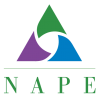 Review Theory and Evidence.
Review Theory and Evidence.
Recommendations and Strategies*
- Enforce civil rights and sexual harassment policies and practices: In the words of the U.S. Government Accountability Office, “without making use of all compliance activities available, agencies lack a complete picture of federal grantee efforts to address occurrences of sex discrimination.”
- Address climate issues: Periodic surveys of “faculty concerns to develop information about factors such as inclusive social atmosphere or sexist attitudes…raise awareness of the … [educational entity] to attitudes and practices that may make it uncomfortable for women at the institution.”
- Practice inclusive hiring processes: An inclusive process includes wide dissemination of job openings, representation of women and minorities on search committees, and the requirement that members of underrepresented groups be in a pool of candidates.
- Heed recommendations: According to the Assessing Women in Engineering Project, faculty should be accessible and provide positive face-to-face interaction; a steward of the climate and culture of the classroom; and reward gender equity initiatives and achievement.
- Administrators should make childcare available and affordable on campus; facilitate “re-entry” for students who are changing careers; ensure adequate financial assistance to students from diverse family backgrounds; and provide accurate and realistic information about how long degree completion normally takes.
- Facilitate informal support groups: Women need continued support and encouragement to stay in the science and engineering pipeline. Support groups may be “helpful in addressing the problems of young women” who are enrolled in courses leading to nontraditional careers.
- Support groups: When nontraditional participants enroll individually, they are less likely to integrate effectively into the social structure, more likely to suffer decreased performance, and more likely to drop out. Change is carried in cohorts, not in single individuals.
- Conduct nontraditional student support groups and peer counseling: A group of studies found the following retention strategies to be effective: (1) access to nontraditional student clubs and team support systems and (2) participation in math clubs, competitions, and after-school programs.
Effective Practices and Resources
- The USDOE site, Doing What Works, contains a section on Prescriptive Feedback that provides ways to give feedback that directly addresses students’ levels of effort, and that reiterates, in a positive tone and a manner aligned with the student’s learning styles, strategies to solve problems.
- Multicultural lessons that focus on social problems such as racism or sexism help to increase educational equity in our schools. The teaching of catchphrases to interrupt gender bullying produced far greater effects on students’ gender attitudes. The Gender Doesn’t Limit Your Curriculum is available from Teaching Tolerance.
- Project Implicit from Harvard University blends basic research and educational outreach in a virtual laboratory that enables visitors to examine their own hidden biases. Project Implicit is the product of research by three scientists whose work produced a new approach to the understanding of attitudes, biases, and stereotypes.
